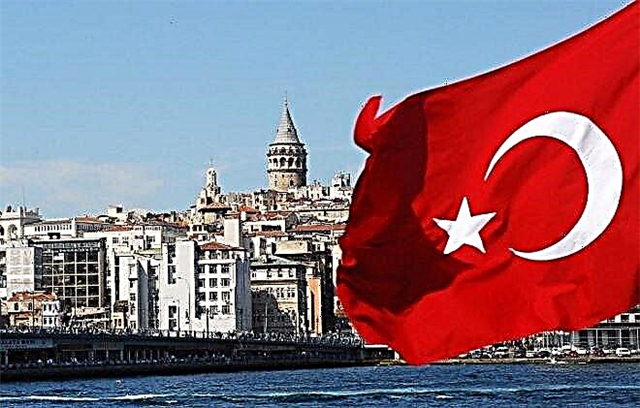After visiting the Republic of Turkey, many entrepreneurs are thinking about how to start their own business in this country. The inflow of capital is facilitated by the respectful attitude towards investors on the part of the local government: business in Turkey for foreigners receives the same conditions as provided for local residents.

The main advantages of organizing a business in Turkish territory
The main trump card of Turkey in the issue of economic ties is its geographic location. The country is located between Europe and Asia and has access to the Middle East and Africa. This means that important trade routes of world importance pass through its territory.
Factors that make it easier to do business in Turkey:
- relatively simple process of obtaining permits, licenses and other documents;
- the same benefits and rights for resident and non-resident entrepreneurs;
- the ability to conduct business within the framework of the law. It is not customary in Turkey to look for ways to circumvent rules or hide profits;
- Turkey is the sixth largest GDP in Europe (US $ 851.1 billion), behind the UK, Spain, Germany, Italy and France (listed in random order);
- the population of the state is more than 83.6 million people. Almost half of this number is under the age of 30 and is a skilled labor force;
- the country's authorities regularly reform the economy. A significant part of the innovations concerns the abolition of restrictions on the inflow of direct investments. A foreigner can open a business in just 7 days;
- developed system of sea and land communication systems, including the railway network;
- business in Turkey is beneficial for Russians by the opportunity to purchase real estate and land by legal entities;
- Turkey has signed free trade agreements with 12 countries of the world, and an agreement on avoidance of double taxation with 68 countries.
Turkey's integration into the EU is in the process of being coordinated with the European Parliament. If both parties fulfill their obligations, the investment flow will increase significantly.
Choosing a direction
All projects announced by foreign businessmen are considered by the Investment Office, which is a subdivision of the Treasury Department under the Office of the Prime Minister of the Republic. The criteria that officials are guided by when selecting projects are:
- competitiveness;
- manufacturability;
- export opportunities;
- the prospect of using local resources.
The territorial location of the future company, the amount of capital that will be invested in it is also important.
What kind of business you can open in Turkey and what to do in the market for goods and services will depend on the scale of the upcoming economic activity. Most entrepreneurs choose the most developed industries in the country:
- hotel business in Turkey;
- restaurant;
- tourist;
- entertaining;
- international trade.
Do not lose sight of the fact that in the Turkish economy there is a certain rating of industries in which you can enjoy the greatest benefits. These include (in descending order):
- development of the infrastructure of regions with a tourist focus, as well as the construction business in Turkey;
- repair and construction of ships;
- fisheries;
- education;
- medicine;
- environmental protection;
- scientific activity, research in various fields;
- electronics;
- automotive production;
- chemical industry.
Many entrepreneurs from Russia come to Turkey to start a real estate project. The construction of residential towns and villas for the purpose of subsequent sale is quite a lucrative business.
Which region to choose
 The choice of the territory where the project will be implemented should depend on the field of activity. Tourism business in Turkey is best developed in resort areas, and it is more profitable to engage in trade in Istanbul.
The choice of the territory where the project will be implemented should depend on the field of activity. Tourism business in Turkey is best developed in resort areas, and it is more profitable to engage in trade in Istanbul.
You should know that the Turkish government has chosen the creation of special economic zones as one of the tools to attract foreign investment. In fact, these are industrial complexes created within a certain territory and uniting small and medium-sized businesses of the same direction.
Such companies succeed in succeeding due to numerous benefits in lending, taxation, setting prices for consumed resources.
Such territories can be divided into several groups:
- Technological Development Zones - brings together R&D companies located in Istanbul and Bursa. Until 2021, software companies are exempt from income tax.
- Organized industrial zones - they are characterized by the abolition of VAT when buying a plot of land, and property owners are exempt from tax on it for a period of 5 years. Such rules apply, for example, in the city of Sakarya.
- Free zones - they are not subject to customs regulations. They are most often located near eastern and European markets, in port areas. Enterprises are completely exempt from VAT, customs and port duties. Ataturk Airport is an example.
Business in Antalya, Alanya, Kemer and other resort regions is best built on the tourist destination and the service sector. Istanbul is a concentration of business and capital. Nearly 50% of transactions in Turkey take place here.
People come to the capital to find partners or open a business in the following areas:
- industry;
- trade;
- tourism.
The center of trade contacts with Russia is the Laleli district. This is where the majority of Russian companies are located.
Choice of organizational and legal form
The Commercial Code of the Republic of Turkey provides for 5 types of forms of ownership that can be opened by foreigners and residents:
- LLC - the number of company owners can be 2-50 people (individuals and legal entities), and their liability is limited to the size of the contribution to the authorized capital, the total amount of which should not be less than 10 thousand Turkish lira (3.4 thousand US dollars).
- JSC - assumes at least 5 owners of the enterprise (legal entities and individuals). The company is managed by a board of directors (sometimes a supervisory board). The authorized capital is 50 thousand lira (about $ 17,000).
- Limited partnership - is created for the purpose of managing a company under a brand name. There is no requirement for a minimum authorized capital.
- Collective company - shareholders can only be individuals, whose liability is not limited.
- Cooperative society - is an association of shareholders with equal rights in the management of the company.
In addition to these forms, foreigners are allowed to open branches of foreign companies or act as private entrepreneurs.
How to start a business
The most profitable form of doing business will be a medium or small business in Turkey in one of the five formats indicated above. To open a company, you need to go through several stages:
- Register in MERSIS (information system for working with the commercial register) the company's charter and memorandum of association. There is no charge for this service.
- Certify company documents with a notary.
- Obtain the taxpayer's TIN.
- Transfer 0.04% of the authorized capital to the account of the Antimonopoly Committee of the Central Bank of Turkey.
- Open a bank deposit account and put 25% of the company's capital on it. The rest can be paid within two years.
- Register with the Commercial Register.
- Register with the notary department of the company's legal books.
Package of documents and financial expenses
 A properly prepared package of documents, including:
A properly prepared package of documents, including:
- Decision on the agreed composition of founders.
- Manifesto.
- Company charter.
- Title (must be unique) in Turkish.
- A copy of the residence permit or work permit of the founders.
- Photo.
All documents must be translated into Turkish. The translator must have the right to sign.
All shareholders will need to be present to register. Each of them must have a valid passport with them. The package of papers should be accompanied by a real estate lease or purchase agreement.
You can go through the procedure yourself or with the help of an intermediary firm. In the first case, the entrepreneur will face the following expenses:
- translator service - $ 200-300;
- fees and duties - from $ 1000;
- rental of premises - $ 700-800;
- notary services - $ 50 per sheet.
If you entrust the question to an intermediary, you need to prepare about 5 thousand dollars. This amount will cover the following expenses:
- notarial procedures;
- registration and fees;
- translation of documents;
- registration with the tax authority;
- entry into the register;
- opening an account.
How to open a business visa
The next step in the implementation of the project is the request for a visa permit, which in the future will give the right to obtain a residence permit. For representatives of states with which Turkey maintains a visa-free regime, a short-term entry into the country on business without a visa is possible. But in order to obtain a residence permit, you will definitely need a business visa to Turkey.
To request it, you need to prepare the following package of documents:
- Visa application.
- Foreign passport with a copy of the main spread.
- National passport and its copy.
- Photo.
- An invitation from a Turkish partner.
- Insurance.
- Financial guarantees.
- Receipt of the paid fee.
It is better to submit a petition in advance, since the consulate may request additional papers and the process will be significantly delayed.
Buying a ready-made business
Those who do not want to start everything from scratch prefer to buy a ready-made business in Turkey. This path has advantages:
- The registration process for another owner is much easier than when the company is registered for the first time.
- The enterprise is already functioning according to a well-oiled mechanism and the new owner has some time to settle all the legal formalities.
- There is an opportunity to track the success of the company, read reviews on the Internet.
But if you are planning to buy a business in Turkey, you need to know that the main disadvantage of such an acquisition is the inability to obtain reliable information regarding its unprofitability or profitability.
The most profitable investment of money will be buying a restaurant or hotel. The sale of such objects in Turkey is well established and the conclusion of the deal will not cause difficulties.
Banking system
 All banks in Turkey are members of the Association of Banking Institutions of the country, which obliges them to comply with the requirements and follow the uniform rules established for all its members. Entrepreneurs have to deal with the banking system of the country at the very beginning of the registration process - when opening an account and depositing the authorized capital on it.
All banks in Turkey are members of the Association of Banking Institutions of the country, which obliges them to comply with the requirements and follow the uniform rules established for all its members. Entrepreneurs have to deal with the banking system of the country at the very beginning of the registration process - when opening an account and depositing the authorized capital on it.
Today there are 44 banking institutions in the republic. The largest of them are:
- Turk Bankasi (Bank of Turkey),
- Türkiye İş Bankası,
- Akbank,
- Yapikredi Bankası,
- FinansBank,
- Ziraat Bankası,
- DenizBank and others.
Tax fees
Turkey's tax code changes frequently. This is directly related to European integration, which requires bringing legislation in this area in line with European standards.
Taxation in Turkey is transparent and loyal. In 2021, the main tax rates are as follows:
- income tax - 20%;
- for dividends - 15%;
- VAT - 1, 8 or 18% (depending on the type of activity);
- income tax is calculated on a progressive scale - from 15 to 35%;
- real estate tax - 0.1-0.6% (depends on the value of the property).
Moving to permanent residence on the basis of business immigration
Business immigration to Turkey begins with drawing up a business plan, which should show the effectiveness and usefulness of the future project, as well as the possibility of providing work for at least two Turkish citizens.
After the project is approved, the entrepreneur needs to apply for a long-term business visa. On its basis, it will be possible to obtain a residence permit.
First, a residence permit is issued for a year. Further, it must be extended, each time confirming the profitability of the enterprise and its benefits for the Turkish economy.
Both those who opened a new company and those who bought out a share in it or the entire business can apply for a residence permit. To obtain permanent resident status, you will have to live and work in Turkish territory for five years.
A Few Tips
To understand how this state suits you for doing business, special business tours to Turkey, which are organized by intermediary firms, will help you in subsequent registration. Beginners will need two basic tips:
- All agreements with the Turks are best documented. It would be a big mistake to take your partners' word for it.
- Work exclusively within the framework of Turkish law, without trying to circumvent it.
A preliminary analysis of the local market and the preparation of a business plan, in which it is necessary to take into account the revenue side, as well as the costs of maintaining the company, will allow you to choose a profitable direction.
The legal assistance of a specialist who is well versed in local laws and speaks Turkish will not hurt either. Most of the problems arise precisely because of ignorance of the specifics of the Turkish mentality, language and code of laws.
Outcomes
Foreigners can open their own business in Turkey under the same conditions as local residents. To do this, you need to decide on the direction, draw up a project and submit it for consideration to the authorized department. The process will take no more than 10 days.
Alternatively, you can choose to buy a ready-made business, not forgetting about the pitfalls that an entrepreneur can expect in this case.











